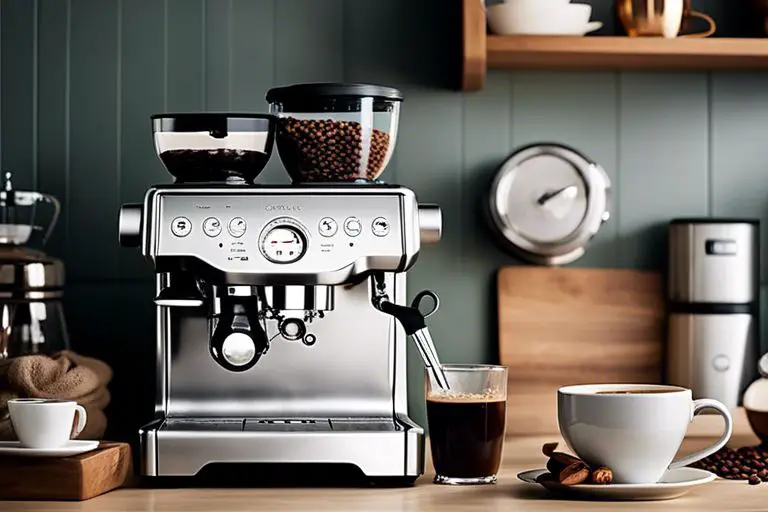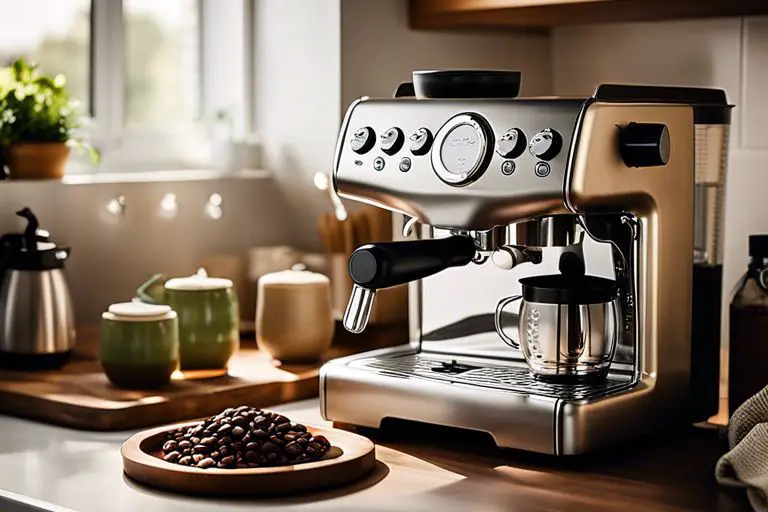Indubitably, the demand for organic products has been on the rise in recent years, and coffee is no exception. With a plethora of options available in the market, it’s important for consumers to weigh the benefits and drawbacks of choosing organic coffee over conventional ones. In this blog post, we will delve into the key factors to consider when deciding whether organic coffee is truly worth the extra cost. We will explore the health benefits associated with organic coffee, the impact on the environment, and the potential taste differences between organic and non-organic varieties. By the end of this discussion, readers will be well-equipped to make an informed decision when it comes to their coffee preferences.
Key Takeaways:
- Quality: Organic coffee is often praised for its superior taste and quality, with many consumers finding it worth the extra cost.
- Environmental Impact: Choosing organic coffee supports sustainable farming practices and helps to reduce the use of harmful pesticides and chemicals.
- Health Benefits: Organic coffee is free from synthetic fertilisers and pesticides, which may result in a healthier cup of coffee for consumers.
- Community Support: Purchasing organic coffee can often mean supporting small-scale farmers and local communities, contributing to a more ethical and conscientious coffee industry.
- Personal Preferences: While some consumers swear by the benefits of organic coffee, others may not notice a significant difference and may find conventional coffee to be more cost-effective.
No products found.
The Production Process
When it comes to the production of organic coffee, the process begins with the organic farming practices employed on the coffee plantations. From there, the production process differs significantly from conventional coffee production, with a focus on sustainability and environmental impact.
Organic Farming Practices
Organic coffee is grown using organic farming practices that promote biodiversity and soil health. This includes the use of compost and cover crops to maintain soil fertility, as well as crop rotation to prevent pests and diseases.
Pesticides and Chemicals in Conventional Farming
In contrast, conventional coffee production relies heavily on the use of pesticides and chemical fertilisers to maximise yields. These chemicals not only have a negative impact on the environment, but also pose health risks to farm workers and can lead to contamination of water sources.
It’s important to note that the use of pesticides and chemicals in conventional farming can also contribute to soil degradation and loss of biodiversity in the surrounding areas.
Health and Environmental Impacts
Health Benefits of Organic Coffee
Organic coffee is cultivated without the use of synthetic fertilisers, pesticides, or herbicides. This means that the beans are free from harmful chemical residues, which can have adverse effects on human health. Additionally, organic coffee is often shade-grown, which not only produces a better-tasting bean but also preserves the natural habitat of wildlife, contributing to a healthier and more diverse ecosystem.
Environmental Sustainability of Organic Farming
Organic farming practices are designed to promote soil health and biodiversity. By relying on natural fertilisers and traditional farming techniques, organic farming reduces pollution of the air, water, and soil. Furthermore, by avoiding synthetic chemicals, organic coffee production helps to protect the health of farm workers and neighbouring communities.
Organic farming strives to minimize its carbon footprint by implementing sustainable farming methods and reducing the use of non-renewable resources. This not only benefits the environment but also contributes to the overall well-being of the coffee-growing regions and their communities.
Cost Analysis
When considering whether organic coffee is worth the extra cost, it is crucial to conduct a thorough cost analysis to understand the factors influencing the price and to compare it with conventional coffee.
Factors Influencing the Cost of Organic Coffee
Several factors contribute to the higher cost of organic coffee, including certification costs, small-scale production, labour-intensive farming methods, and demand outweighing supply. The complexity of organic farming and the need to meet stringent certification standards further drive up the overall production cost of organic coffee. Any fluctuations in weather conditions can also impact the yield and influence the price of organic coffee.
Price Comparison with Conventional Coffee
When comparing the price of organic coffee to conventional coffee, the former generally has a higher price due to the additional expenses involved in organic certification, ethical sourcing, and sustainable farming practices. To illustrate this difference, let’s break down a comparison of the prices in the table below:
Price Comparison: Organic vs Conventional Coffee
| Organic Coffee | Conventional Coffee |
|---|---|
| Higher due to certification and sustainable farming practices | Lower, as it does not have the same level of certification and ethical standards |
When comparing the two, it is evident that organic coffee carries a higher price tag due to various factors that are taken into account during the production process. These factors, such as organic certification and sustainable farming practices, contribute to a higher cost for organic coffee compared to conventional coffee.
Consumer Perspective
As consumers, it’s important to consider the various factors that come into play when deciding whether organic coffee is worth the extra cost. To make an informed decision, it’s crucial to weigh the potential benefits and drawbacks of choosing organic over non-organic coffee. To delve deeper into this topic, you can read more about Organic vs. Non-Organic Coffee: What Are the Differences?.
Taste and Quality Considerations
When it comes to taste and quality, organic coffee is often perceived as having a more robust and complex flavour profile compared to non-organic coffee. This is mainly due to the careful cultivation methods and environmentally-friendlypractices employed in organic coffee production. Additionally, organic coffee is typically free from harmful chemicalsand pesticides, which can positively impact the overall flavour and aroma.
The Psychological Factor: Perceived Value
From a psychological standpoint, many consumers associate organic coffee with a higher level of quality and ethical production practices. This perception often leads to a greater sense of satisfaction and fulfilment when consuming organic coffee, even if the actual taste and quality differences are minimal. The perceived value of organic coffee can ultimately justify the extra cost for many individuals.
It’s important to remember that the psychological factor plays a significant role in consumer decision-making. The perceived benefits of organic coffee, such as environmental sustainability and health considerations, can heavily influence the purchasing behaviour of individuals who place value on these aspects.
Is Organic Coffee Really Worth the Extra Cost?
In conclusion, when it comes to organic coffee, the extra cost may indeed be worth it. Not only does organic coffee promote sustainable and environmentally-friendly farming practices, but it also provides a better quality product, free from harmful chemicals and pesticides. Additionally, choosing organic coffee supports the well-being and fair treatment of coffee farmers. While the price may be slightly higher, the benefits of organic coffee far outweigh the extra cost. Whether it’s the improved taste, the positive impact on the environment, or the ethical implications, investing in organic coffee is a decision that can positively impact both consumers and coffee producers. Therefore, considering the multitude of benefits, it is evident that organic coffee is indeed worth the extra cost.
FAQ
Q: Is organic coffee really worth the extra cost?
A: Yes, organic coffee is worth the extra cost as it is grown without the use of harmful chemicals and pesticides, which not only benefits the environment but also your health.
Q: What makes organic coffee different from regular coffee?
A: Organic coffee is grown without synthetic pesticides or fertilisers, and it is produced using sustainable farming practices that promote biodiversity and protect natural resources.
Q: Does organic coffee taste better than regular coffee?
A: Many people believe that organic coffee has a richer and more authentic flavour compared to regular coffee due to the natural growing and processing methods used.
Q: Are there any health benefits to drinking organic coffee?
A: Organic coffee contains higher levels of antioxidants and lower levels of harmful chemicals, making it a healthier choice for consumers.
Q: Does buying organic coffee make a difference for the environment?
A: Yes, buying organic coffee supports sustainable and eco-friendly farming practices that protect the environment, wildlife, and the livelihood of coffee farmers.
Last update on 2026-01-09 / Affiliate links / Images from Amazon Product Advertising API




